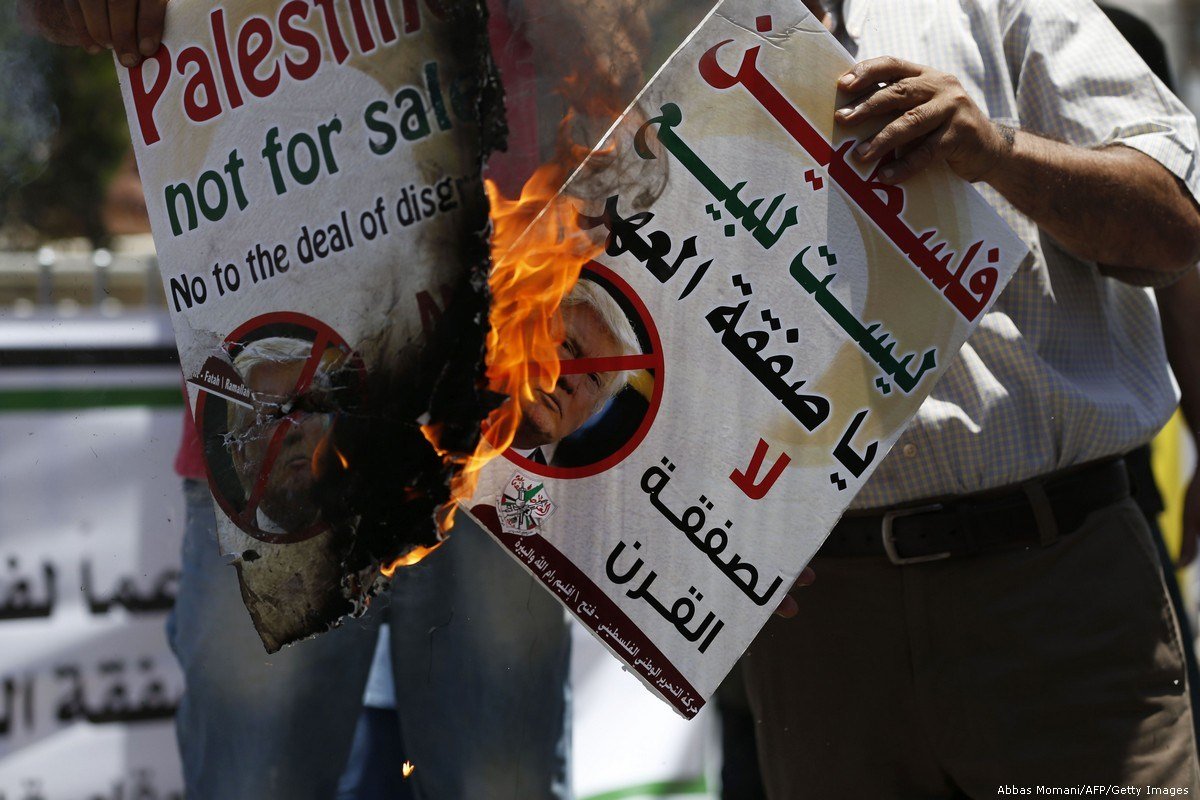The PA has no political strategy to counter US-Israeli annexation plans

Since the Trump administration revealed its so-called deal of the century details, annexation of the occupied West Bank has become a rallying point for Israeli politicians, particularly prior to the latest General Elections. The unity government agreement signed yesterday between Prime Minister Benjamin Netanyahu and the leader of Blue and White, Benny Gantz, paves the way for draft annexation legislation to be brought before the Knesset.
Palestinian Authority President Mahmoud Abbas has no obvious political strategy to counter the US-Israeli annexation plans. With yet another reference to the coronavirus pandemic, Abbas warned, “Don’t think that because of the coronavirus we forgot about the annexation or Netanyahu’s measures or the ‘Deal of the Century’.”
Hanan Ashrawi, a member of the Palestine Liberation Organisation (PLO) Executive Committee, declared: “The Palestinian leadership is very clear on where we stand. Annexation is a declaration of permanent aggression on inalienable Palestinian rights and the standing of international law.”
If the PA refuses to abandon its collaborative politics with Israel, annexation will not remain “a declaration of permanent aggression” for long. The coronavirus did not prevent Israel from political planning, whereas the PA became a temporary protagonist in the international community’s scheming to impose future negotiations based upon Israel-PA security collaboration during the pandemic.
PLO Secretary-General Saeb Erekat, meanwhile, is lobbying the international community to stop Israel’s annexation plans. In a statement, Erekat evoked the two-state paradigm, saying that he expects “support from the international community to facilitate a meaningful peace process based on international law and relevant UN resolutions for the achievement of the internationally agreed peace parameters.”
Erekat’s statement plays into international expectations of Palestinian subjugation. The constant reference to international law is not helping Palestinian prospects. On the contrary, it maintains the illusion of Palestine as an international project to be mismanaged until its complete disappearance. With every violation, the PA calls upon the international community to uphold international law and to facilitate negotiations, while ignoring the Palestinian demands which are based upon the political and entirely legitimate right to return.
In this way, the PA is also affirming the question of Palestine as an international concern in which Palestinians play no part, other than serving the humanitarian agenda. If annexation is implemented, it will provide the international community with many opportunities to redefine the Palestinian struggle, in the same way that the US is adamant on redefining who qualifies as a Palestinian refugee.
Expectations from the international community to uphold international law do not constitute a political strategy. The UN determined its strategy decades ago when it accepted the creation of colonial Israel in Palestine. Likewise, the EU’s relationship with Israel will take precedence over its purported peace building and support for the creation of a hypothetical Palestinian state. Furthermore, Trump’s deal has not encountered any collective political defiance so far, and it is unlikely that the PA’s weak pleas will alter the international determination to adhere to the two-state compromise or variations of it, as long as the rhetoric remains relevant.
Source: Ramona Wadi, Middle East Monitor

WRITE YOUR COMMENT